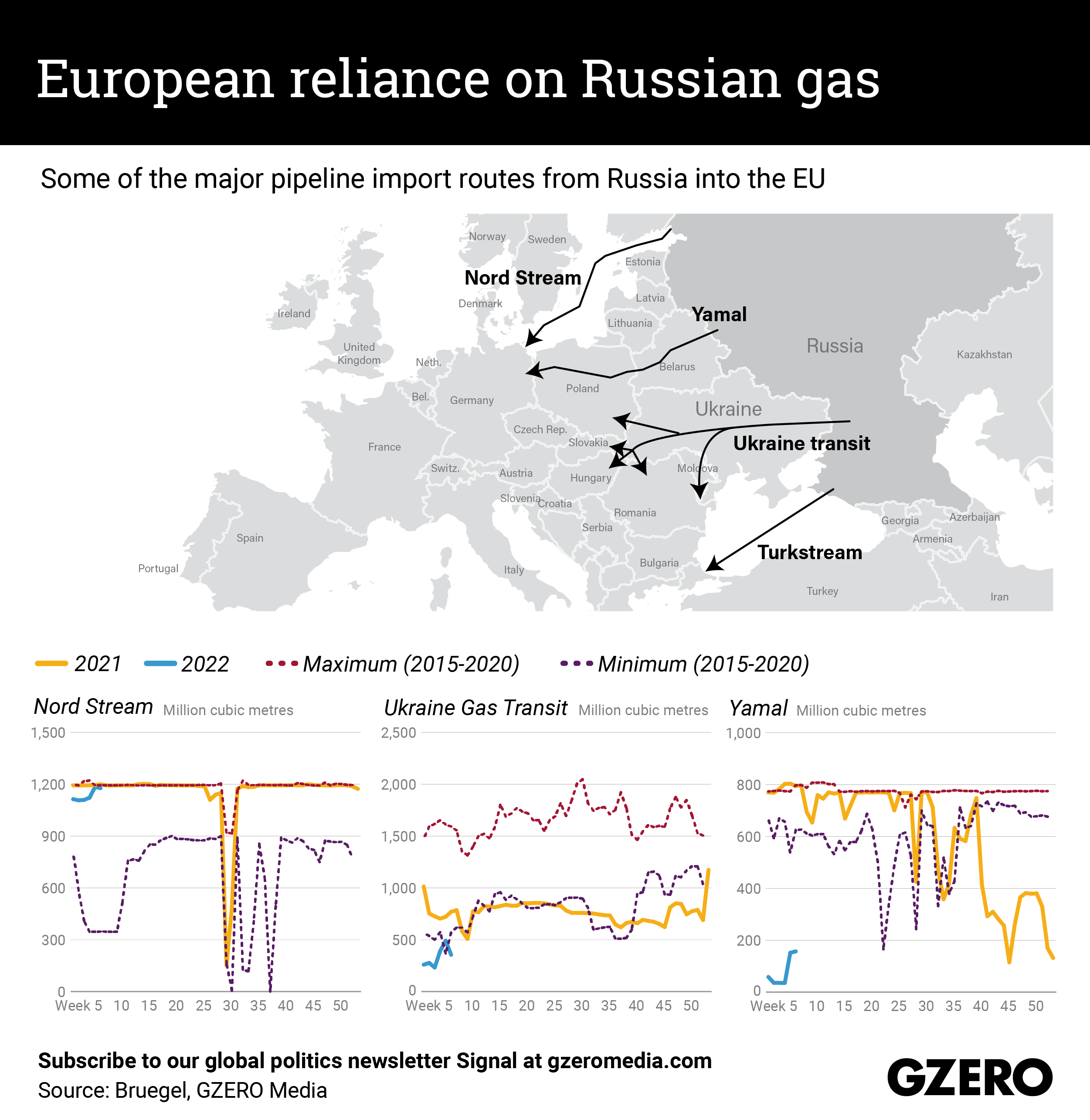February 17, 2022
Russia’s increasingly aggressive stance against Ukraine has again highlighted Europe’s reliance on Russian gas imports. But recent events have also revealed how much Russia’s economy depends on its European consumers. While a lot of Russian natural gas used to traverse Ukrainian territory on its way to the EU, the Center for Strategic and International Studies says that level was slashed by 70% between 1998 and 2021 as Moscow sought to increase its leverage over Kyiv. We take a look at some major pipeline import routes from Russia to the EU from 2015-2021.
More For You
- YouTube
Singapore was one of globalization’s biggest beneficiaries. Ian Bremmer looks at whether the city-state can survive in a world where the economic order that drove Singapore's rapid rise starts to unravel.
Most Popular
Think you know what's going on around the world? Here's your chance to prove it.
Igmel Tamayo carries charcoal to sell on the side of a road for use as cooking fuel in homes, after US President Donald Trump vowed to stop Venezuelan oil and money from reaching the island as Cubans brace for worsening fuel shortages amid regular power outages, on the outskirts of Havana, Cuba, on January 12, 2026.
REUTERS/Norlys Perez
Xi Jinping has spent three years gutting his own military leadership. Five of the seven members of the Central Military Commission – China's supreme military authority – have been purged since 2023, all of whom were handpicked by Xi himself back in 2022.
© 2025 GZERO Media. All Rights Reserved | A Eurasia Group media company.
